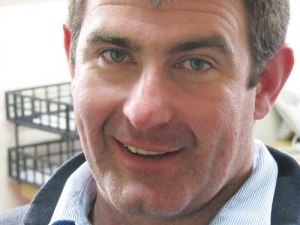IrrigationNZ and Federated Farmers say greater scrutiny of claims irrigation causes increased 'rumbly-gut' is needed.
The industry bodies have joined forces in light of recent assertions by Alison Dewes that they say are not scientifically sound.
They are asking for improved scientific integrity when making claims in the media as "the validity of the argument around increased pathogen losses resulting from irrigation or water storage are not sound," says IrrigationNZ CEO Andrew Curtis.
"Our understanding is pathogen contamination of a water supply generally occurs through a direct pathway – a point source contamination. Neither irrigation nor water storage create pathogen issues, except through natural means, the increased birdlife around a water storage lake for example. The main causes of pathogen contamination are poor water treatment from domestic discharges or inadequately protected well-heads," says Curtis.
Federated Farmers also takes exception to the focus on dairy farming.
"Dairy farmers are too often used as an easy target when the reality is that this in an industry that takes environmental performance very seriously," says Federated Farmers water spokesperson Chris Allen.
"Dairy farmers have invested $1 billion in the past five years on environmental initiatives such as stock exclusion, riparian planting land and developing wetlands. Farmers are custodians of the environment and they will continue to invest in actions that make a difference to managing their farms' environmental impact."
Lincoln University has established a series of monitoring wells at three locations across the Lincoln University Dairy Farm. These wells enable monitoring of the shallow aquifer (6-12m below ground) as the groundwater moves underneath the farm.
While there are as yet no published results available, Ron Pellow, executive director - South Island Dairying Development Centre says initial comparisons of changes from the upper to lower wells confirm the soil in an irrigated, well managed dairy farm is an effective filter of material that may have been deposited on the surface from grazing animals or transient bird life.
Issues from pathogens generally arise through the following pathways:
1. Septic tanks that have failed that are located up gradient of a domestic water supply.
Septic tanks need to be regularly maintained. When they fail domestic waste water can directly leak into groundwater. For older properties it is common for a shallow well to provide the domestic water supply. If a failing septic tank is located up gradient of this well there is an increased chance of contamination.
2. Livestock effluent that is injected into an irrigation system without backflow prevention.
If the water supply used for effluent irrigation (from a well or surface water take) is not protected through a backflow prevention system (a backflow prevention system stops any water taken returning to the aquifer or surface water body and is standard for all new irrigation systems) it is possible for contaminated water to 'backflow' into the source.
3. Poor well-head protection.
It is possible for water to move down the side of a well case, or if left open directly into it. This provides a direct pathway for contaminants to enter into an aquifer. Sealing the well-head (both the bore itself and around it) solve this issue. Concreting (sealing) around the top of wells is now a requirement in Canterbury. Keeping livestock away from well-heads is also advisable.
"A good example of this issue is the Dunsandel domestic water supply," says IrrigationNZ's Andrew Curtis. "For a number of years high levels of e.coli were frequently detected in the drinking water and irrigation was blamed for this. However, post the district council concreting around the water supply well and alterations being made to other nearby wells to ensure they were suitably protected, the issue seems to have largely disappeared. This points to a point-source discharge being the issue, not irrigation."



















